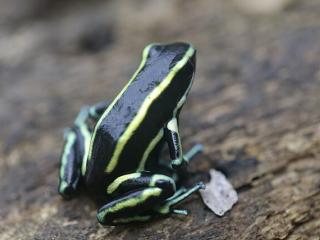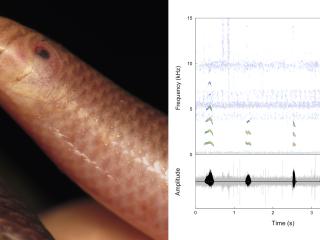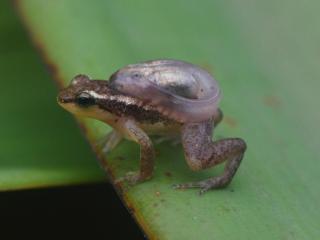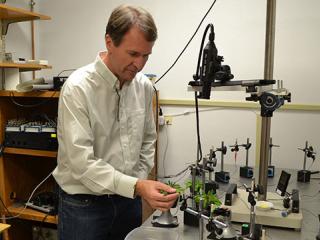Studies in behavior in the Division of Biological Sciences span a number of disciplines, from evolution and ecology to neurobiology and genetics. Faculty research incorporates genetic, developmental, physiological, and ecological mechanisms that influence organismal behavior and how evolutionary processes influence these mechanisms. Studies involve a range of organisms, from plants and insects to birds and elephants, in laboratory studies and in natural habitats. The research encompasses a variety of processes, including responses to endocrine disrupting chemicals, adaptation to environmental pressures, memory formation, and sexual selection.
Faculty
Insect communication, behavioral ecology and evolution
Evolution of elaborate parental care behaviors and mating systems in frogs
Genomic approaches to the study of life history evolution
Our research is broadly classified into three categories: animal communication, behavioral drive, and axes of divergence.
Patterns and consequences of animal sociality
Circuit stability, energetics, plasticity, and respiratory physiology
Evolution and neuroethology of acoustic communication systems in insects and amphibians
Neural network plasticity as a result of injury and disease
















